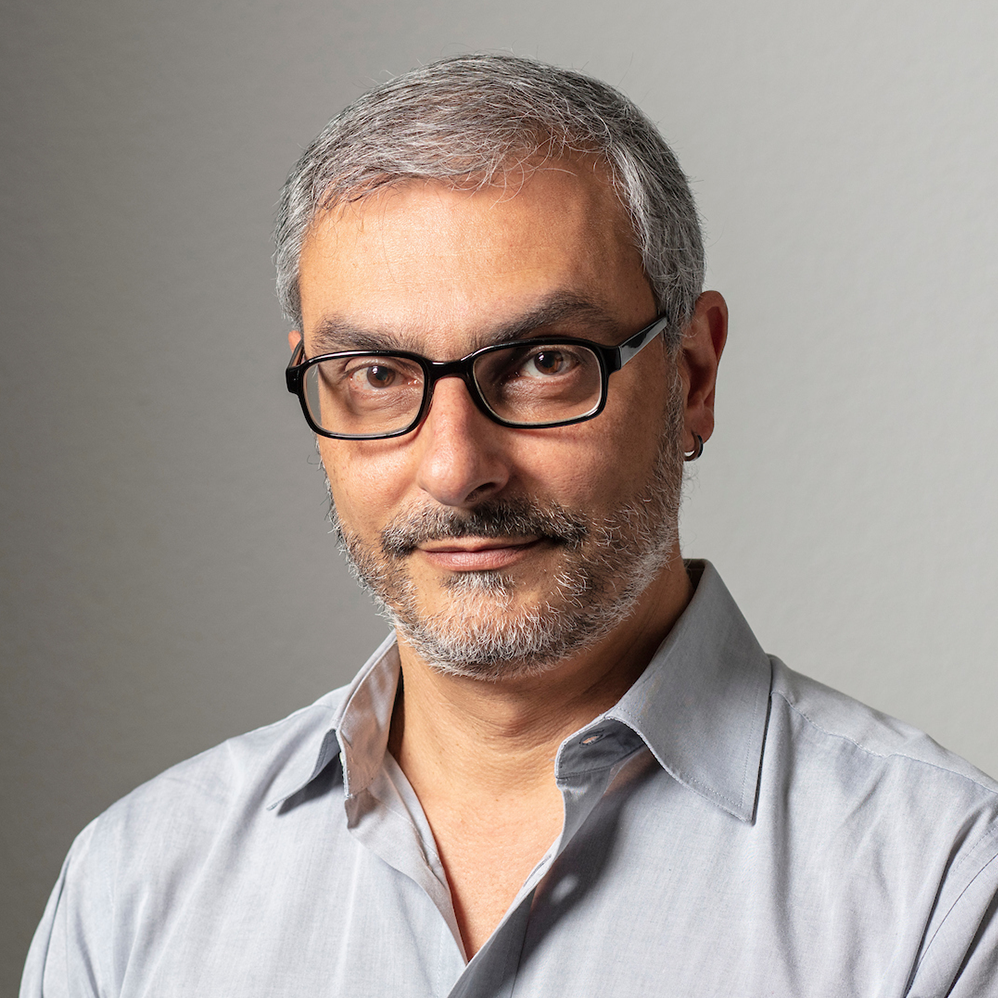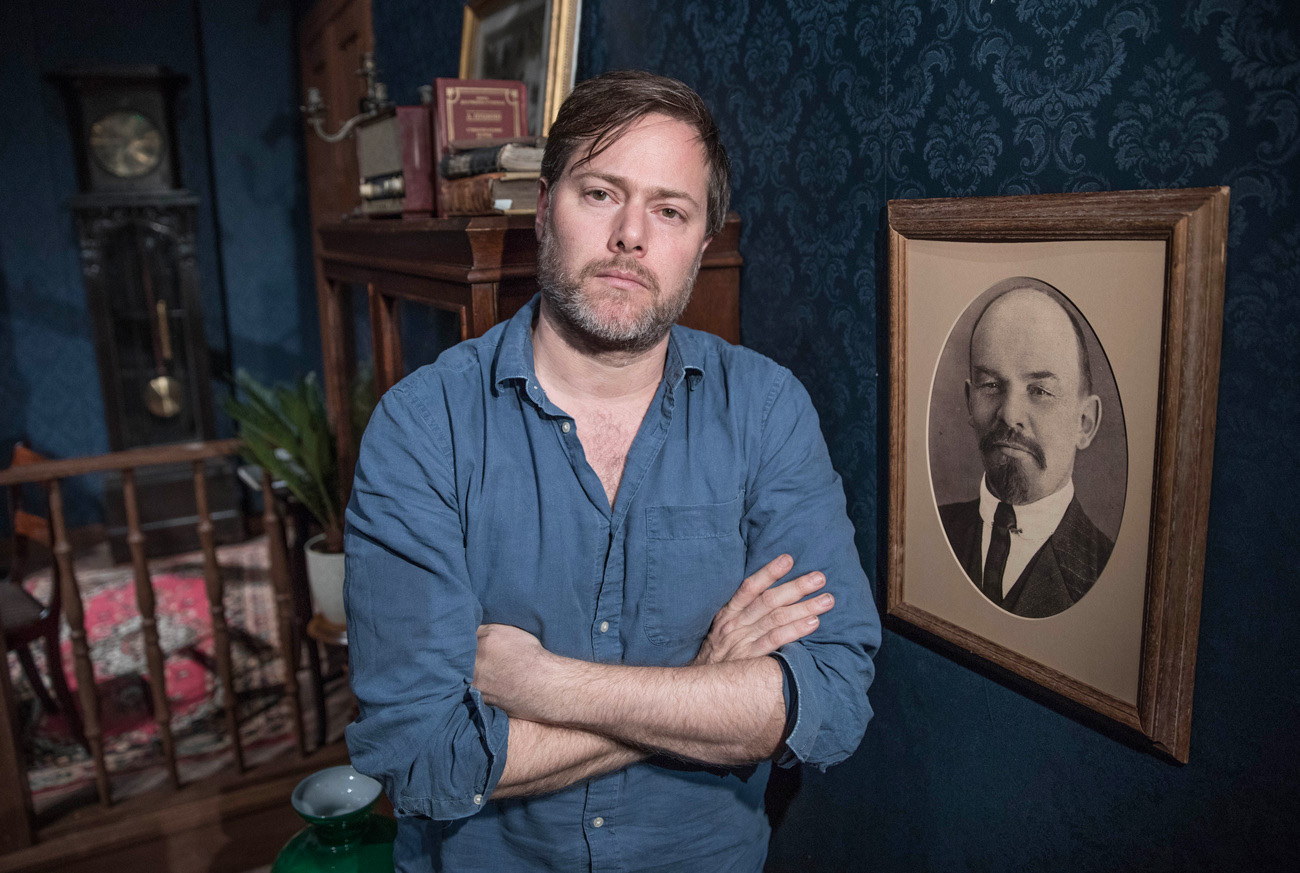Swiss film exposes xenophobia as weapon against the working class

Swiss-Iraqi filmmaker Samir’s new documentary, which premiered in Locarno, shines a light on Italian immigrants in post-war Switzerland. It’s a tale of racism, xenophobia and resilience, and a call to avoid past prejudices.
I met Samir for a coffee on the last day of the 77th Locarno Film Festival following the premiere of his new film, The Miraculous Transformation of the Working Class into Foreigners. He is tired, like everyone who attended the ten days of events and meetings in Locarno, but happy. All four screenings of his film sold out and reviews in Swiss Italian and Italian media lavished praise on the film.
Every debate on immigration inevitably raises issues surrounding racism and prejudice, and does not always take into account basic socio-economic issues and consequences. In Samir’s film these categories all overlap, as suggested in the film title that reads like a thesis statement. And, to some extent, it is one.
Racism is a system
“I knew that racism is a construction – you ‘construct’ people’s identities and exclude some of them,” he says. “But when I entered the Bundesarchiv (Swiss Federal Archives) in Bern, I understood much better how deeply and profound this racist structure was created over decades. There was no evil mastermind behind it. It’s a system which reproduces itself on its own, like nature, a bad nature.”
A main post-war contribution of the German language to institutionalised racism and xenophobia can be found in the term Überfremdung – it literally means foreign infiltration but refers to excessive immigration. Originally coined in the early 20th century, it was taken by fascist parties in the 1930s. In its modern sense, the term was resurrected by the mid-1950s as the first waves of Italian Gastarbeitern (‘guest workers’) were followed by others from southern Europe, notably from Spain, Portugal and Greece.
It even became the keyword of a national referendum in 1970, also known as the ‘Schwarzenbach Initiative” after the hard-right Swiss politician James Schwarzenbach (1911-1994). His proposal to limit foreign nationals to 10% of the total Swiss population (today it is over 25%) and immediately expel the surplus, around 350,000 people then, was rejected by 54% of voters. “But bear in mind that 46% voted yes,” said Samir.
In 1993, the Society for the German LanguageExternal link declared Überfremdung the “un-word” of the year, as it makes “undifferentiated xenophobia sound more argumentative and clinical”.
Samir exhaustively explores the use of this word in his film, and how it conveyed a deliberate policy. “In my research I found some footage in which the federal minister of economic affairs, the same one who invited the migrants to come to Switzerland, declares on Swiss television that Überfremdung in Switzerland should be stopped,” he says.
“That’s when I began to understand that it was not a schizophrenic policy, but a system they were trying to create with a clear message to the ‘guests’: we want to have you [working here], but you are not supposed to have rights.”

Between melancholy and irony
Racism, xenophobia, and prejudice are familiar terms to the filmmaker. His Swiss mother lost her citizenship when she married an Iraqi, and Samir, who was born in Baghdad in 1955 and emigrated to Switzerland at the age of six, only managed to obtain his Swiss citizenship as an adult. This was only possible because his mother regained her Swiss nationality after marrying her second husband – a Swiss citizen.
His new documentary is obviously a very personal film, too. Events in Samir’s personal life are inserted as animation in the film’s narrative. On top of his experience as a foreigner, we see his coming-of-age in working class Dübendorf, near Zurich, where he frequented the venues of trade unions and the Social Democratic party.
But instead of painting a victimised portrait of himself, Samir says he always tries to laugh at “this strange world we live in”. He says that he’s developed two main personality traits. “One is melancholy, which is not the same thing as sadness. Melancholy is a strong tool to fight for something better. Sarcasm and irony are the other side,” he notes.
The principles that define the Swiss nationality are the first victims of this attitude. He adds: “For instance, the Swiss like to say they are special and that’s why not everybody gets this passport for free. On the other hand, they get their passport by accident of birth. And I had by accident a Swiss mother. So why am I not Swiss then? Because I have a darker-skinned father, or what? Even when I got this Swiss passport I was beaten up by the police and called a Papierlischwiizer (Swiss on paper). I could only say, who are you to tell me what I am? The best thing to do is to laugh about this.”

Divide and conquer in the class struggle
The guest workers were left on their own for decades without support either from Swiss workers’ organisations or from their own country – even the Italian Communist Party only remembered their existence during elections. One of the most enlightening sequences shows how even leftwing supporters, and the trade unions in particular, also segregated the foreign workers and engrossed the Überfremdung cohorts.
“As the working class, as a class, began to dilute and crumble, the rightwing parties bring a message that you may not be a worker anymore, but you are Swiss above all,” says Samir. And it worked as an effective strategy to compensate, at least psychologically, for the gradual disenfranchisement of the native working class, while at the same time creating a rift between workers of Swiss and foreign origin.
This situation only began to change in the 1970s when a new generation of union leaders, many of them with university degrees, began to address – and involve – the foreign workers in their midst.
“Meanwhile, the working class crashed with a new system of individualised labour. The bulk of work is not in the factory anymore. You do it in your home or wherever. The heavy work you automatise or outsource it somewhere else. So of course there are still people here who are working hard, but it’s difficult to call them working class because they are not united anymore, and it’s not a class anymore,” says Samir.
“The bourgeois class knows very well what they are,” he adds. “They have their constitution and their culture. The working class tried to do that for 150 years, and now it’s falling apart because it doesn’t exist anymore as a factor or as the core in the big factories. So, we are really in a difficult situation where the new workers are mostly immigrants or very poor indigenous people.”

Traumatic integration
Today, the eventual integration of Italian guest workers is mentioned as an example that extends to later migration waves, such as the refugees who fled the wars in former Yugoslavia in the 1990s. But the process generated huge trauma.
Samir says that some of the people he interviewed during the film’s research refused to speak in front of the camera. It was also during the shooting of the film that the director discovered that his Italian ex-girlfriend was a former Schrankkind [closet child, i.e., children of guest workers who came illegally to Switzerland]. They had no right of family reunion and had to spend their days confined at home to avoid the police. “I was shocked, and I asked her, why have you never told me, and she said, why should I talk with you about this deep emotional desperation?”

However, today it is not uncommon to see the guest workers’ descendants, known as secondos in Switzerland, share the xenophobic ideas of right-wing parties. If there is a final message in this film, it comes from the Italian journalist Concetto Vecchio of La Repubblica: “You shall not forget it. We were not treated well. And now we should not treat the next migrants like we were treated.”
Samir’s project is set to continue. A European TV channel has recently commissioned the filmmaker to produce a series in which each episode focuses on a European country and takes a historical look at its immigration hurdles.
Edited by Mark Livingston/sb
Disclaimer: SRG, the parent company of SWI swissinfo.ch, co-produced this film via Radiotelevisione Svizzera (RSI).

In compliance with the JTI standards
More: SWI swissinfo.ch certified by the Journalism Trust Initiative













You can find an overview of ongoing debates with our journalists here . Please join us!
If you want to start a conversation about a topic raised in this article or want to report factual errors, email us at english@swissinfo.ch.